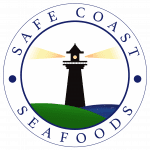Everyone enjoys eating fish. In addition to being a fantastic source of protein and omega-3, it is also delicious. Finding sustainable fish, though, can be a challenge. Supermarkets and fish counters are covered with a variety of labels. But what is truly sustainable is having the proper knowledge that drives sustainable decisions.
The truth is that choosing the proper species is only one aspect of eating sustainably caught fish. Discussing both wild-caught and farmed fish is a good place to start.
This post will walk you through the necessary information and assist you in making a choice of seafood that has been sourced ethically.
Wild Vs. Farmed Fish
While some contend that all fishing is unsustainable, others maintain that growing fish is ineffective and bad for the environment. Both methods of obtaining fish have advantages and disadvantages. We need a combination of the two to keep fish on our plates consistently.
Wild Fish
Overfishing is the biggest issue with wild-caught fish. Our preference for apex predators contributes to the issue, as catching them impacts every food chain level. Furthermore, bycatch is neither sellable nor likely to survive.
But the most sustainable seafood sources come from well-managed fisheries, like the ones supported by Safe Coast Seafoods. We manage the breeding and migratory patterns by working closely with governing bodies that are working to keep our oceans thriving for generations to come.
Choose seafood that has been caught in well-regulated US-fisheries. Use the Seafood Watch database by the Monterey Bay Aquarium to determine whether the seafood you are purchasing comes from a sustainable fishery.
Farmed Fish
Aquaculture produces a tremendous amount of seafood with relatively little input. It is not constrained by where a species typically lives and can be done all year round. It’s the ideal way to relieve pressure on our wild stocks. Therefore, Safe Coast Seafoods is the wholesale fresh fish supplier invested in both practices.
For example, our shellfish farm Willapa Bay grows oysters that are both nutritious and delicious. Oyster farming requires virtually no inputs and cleans the water surrounding it. Choose seafood from farms that are transparent about their practices and are certified in sustainability and safety.
What to Know Before Purchasing Seafood
Besides understanding the importance of fresh vs. wild seafood, purchasing your produce from a quality wholesale supplier is essential. In addition to sustainably sourced seafood, here are four factors to consider while buying your supply:
-
Variety
Consider a seafood supplier’s product range. You want to seek a supplier who provides a large selection of varieties and cuts, ensuring you have options and will always have something new to try and place more orders.
Moreover, selecting from a range ensures you’re giving other species to repopulate as part of sustainable and responsible fishing practices.
-
Price
You want to ensure you receive a decent bargain because seafood can be expensive. Additionally, you must conduct some research to find the best bargain. Safe Coast Seafoods takes pride in being a wholesale supplier of fresh seafood at competitive prices.
-
Quality
Your supplier should be able to promise the freshness of their produce and sourcing practices, ensuring you get nothing but high-quality and meaty seafood.
In addition, their flash-freezing practices should be transparent, guaranteeing only the freshest produce gets frozen for consumption later. This technique is an excellent way to access the finest-tasting seasonal seafood all year round.
-
Reputation
It’s crucial to consider a seafood supplier’s reputation while looking for one. Make sure they have a proven track record of offering high-quality items and responsive customer service. Safe Coast Seafoods is a long-standing seafood supplier with a solid reputation over time. You’ll always be assured of our products and will return for more!
